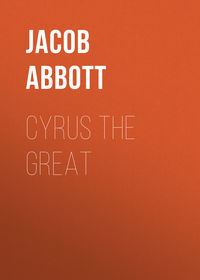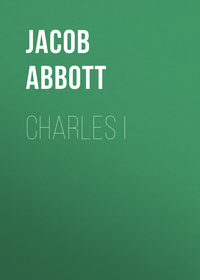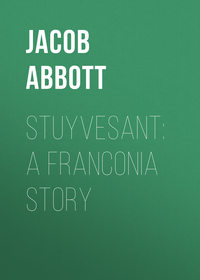
Forests of Maine
There was a large tree lying here, with its top in the water, and butt-end upon the beach. It was a tree which some settler had cut down at some place near the shore of the pond, and when the water was high it had been washed off, and, after drifting about the pond for some time, it had got lodged upon this beach, where it remained in the position in which our adventurers found it. It had been lying there for more than a year, and the branches which were out of the water were dead and dry. The foliage had long since disappeared.
The boatman brought the boat up alongside of this tree, so that Forester and Marco stepped out upon the trunk, and walked to the land. The boatman then tied the boat to one of the dead branches of the tree, and, taking the basket of provisions and the hatchet, they all walked along, in search of a place for their dinner.
They found a sheltered and pleasant place, at a little distance, under the trees. Marco soon struck a light, and began to build a fire. He found it somewhat difficult, however, to procure dry wood enough for the fire, until, at last, he thought of the branches of the tree to which the boat was fastened. He accordingly went to the place and began to cut them off.
The boat was somewhat in the way while he was doing this, and he thought he would move it. He could fasten it just as well, he thought, by a stake driven into the sand. He therefore cut off one of the branches, and, after squaring one end and sharpening the other, he drove it down as well as he could into the sand. He then fastened the boat to this stake, thus removing it from the tree, and clearing the way so that he could conveniently cut off the branches.
This was not, however, a very wise operation, for it is very difficult to drive a stake securely into sand. Sand, even when wet, has so little tenacity that it yields to the slightest force, and the stake soon began to work loose, by the motion of the boat, agitated by the waves; and, in fact, before Marco had finished carrying away the branches, the stake was entirely loosened from its bed, and was just ready to topple over.
As the boat continued to pull upon it, this way and that, as it was agitated by the fluctuation of the water, it soon drew it down, and the boat, being now entirely at liberty, began to move slowly off from the shore. It soon drifted out where it was more fully exposed to the action of the wind, when it began to move much faster. And thus, while our party of voyagers were eating their dinner, seated on a flat rock, by the side of a good fire, in fancied security, their boat was quietly drifting away, thus apparently cutting them off from all communication with the main land.
Marco made the discovery that the boat was gone, just after finishing his dinner, and he immediately gave the alarm. Forester and the boatman came at once to the spot. They could just see the boat, half a mile distant, under a ledge of rocks, which formed the shore in that place.
This was the third time, on this journey, that Marco had found himself isolated in circumstances of difficulty and danger, and cut off, apparently, from all convenient means of retreat; and, at first, he thought that this was the worst and the most dangerous of the three. In fact, he did not see in what possible way they could escape.
"What shall we do?" asked Forester.
"We must make a raft, somehow or other," said the boatman. "If I had a log, I could go after the boat on that."
"Won't this tree answer for a log?" asked Marco.
The boatman looked at the tree. He said that, if he had an axe, he thought he could cut off the top, and roll the trunk into the water; but it would take him a long time, he said, to hack it off with the hatchet.
There seemed to be, however, no alternative; so he set himself at work, and in due time he cut off the stem of the tree, just where it entered the water. They all three then took levers, which the boatman made with his hatchet, and, by making great exertion, they got the log out of the sand, and rolled it round into the water, where it floated. The man then cut a long pole, and, mounting upon the log, he pushed himself out over the surface of the water.
Forester and Marco watched his progress with great interest. Marco thought that he would certainly roll off the log, but he seemed to stand and to walk upon it, perfectly at his ease. He would advance to the forward end of the log, and then, planting the foot of his pole in the sand on the bottom, he would push, walking along as the log advanced, until he came to the stern end of the log, when he would draw out his pole, and walk back again. In this way he propelled the log until the water became too deep for his pole to reach the bottom, and then he ceased these efforts, and, standing upright, he left himself to be driven along slowly by the wind.
Forester and Marco saw plainly that he would be gone for some time, and they amused themselves, during his absence, in wandering about the shores of the island. In one place, Marco found, upon a rock a little above the water, a slab of pine wood, which was bleached by the sun and rain. It had drifted down, the summer before, from some stream emptying into the pond. In the winter it had been frozen into the ice, and, when the ice broke up on the following spring, the cake to which the slab was attached, had been crowded up upon the shore, where the slab had been left when the ice melted.
Marco immediately thought that this slab would furnish him with a good piece of wood to make a flower press of, and he accordingly dragged it up where he could work upon it with his hatchet. He soon cut off a piece, of the proper length, and hewed it down so as to make it of a convenient shape to carry.
When Forester came to examine it, he said he thought it was a very good piece, and when it was planed smooth and varnished, he thought, from its appearance, that it would be of a very pretty color.
"You can get it made at the first shop we come to," said Forester, "and then you can collect and preserve a great many flowers in it, when we get to Canada. When you get home; you can put them in a book, and call them the Canadian Flora."
"That's just what I'll do," said Marco, "and then, when I get home, I'll give some of them to my cousins. They will like them, because they came from Canada. But I can't put a great many into such a press."
"No," said Forester. "You only collect them in the press, which you always carry with you in your pocket. You put them all in a book, or in a larger press, as soon as you get home, and then you have the small press ready for use again."
While they were talking thus, they watched the boatman, who had, by this time, reached the land and recovered the boat. He came back quite rapidly, propelling the boat with the paddle. Marco and Forester embarked on board of her, and they finished their voyage without any further adventure. The next day, they reached the Quebec road, and, leaving the region of the Kennebec, they went on their way towards Canada.









